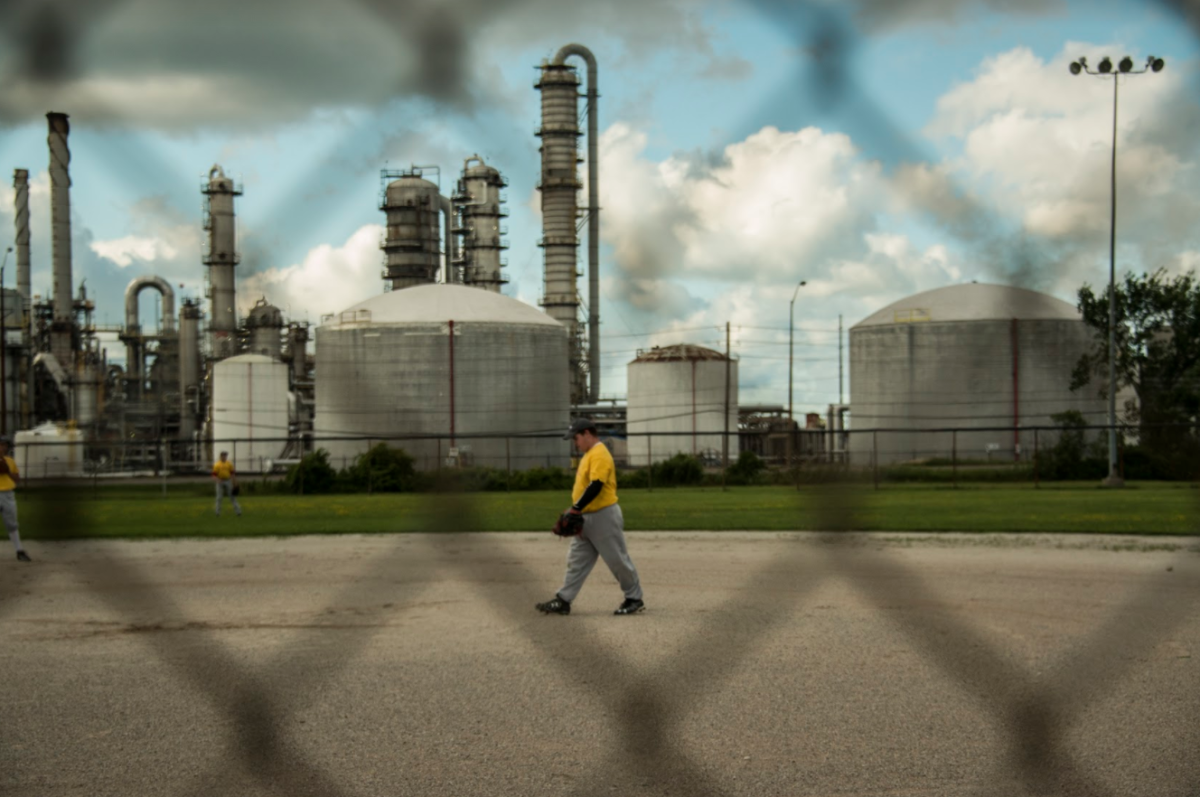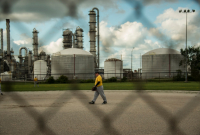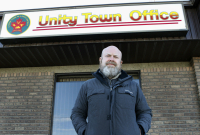Support strong Canadian climate journalism for 2025
As Canadians, there are a few things that we like to believe we’re pretty good at, such as ice hockey and universal health care. We like to believe that we are known for things like this. We also identify as lovers of the great outdoors, and overall we see ourselves as a pretty “green” country.
However, there is much room for improvement.
Health Canada has recently released a report that estimates that 14,400 Canadians die prematurely each year due to air pollution alone, and we are consistently ranked by the Conference Board of Canada near-last in environmental performance among industrialized countries.
While pollution may affect just about everyone, it tends to hurt some more than others. Certain Canadians are more likely to be affected because of where they live. Economically marginalized communities, many of them Indigenous, are often situated near poorly regulated heavy industry and other harmful activities such as toxic waste dumps.
Other segments of the population are more physically vulnerable no matter where they live. Poor air quality is linked to asthma in children, and premature death in seniors due to heart and lung disease. Women are especially vulnerable to hormonal cancers such as breast cancer, which affects more than 25,000 Canadian women every year. These vulnerability factors often intersect to exacerbate their negative impacts. For example, children of lower-income women living in a polluted community are more likely to suffer from behavioural and chronic health conditions and also less likely to have a family doctor.
All of this continues the cycle of poor health and economic outcomes.
Canadians are rightly proud that we provide access to universal health care. Yet when it comes to environmental health there is no adequate protection to the detrimental impacts of environmental contamination on health. The powerful concept of environmental rights offers an opportunity to set this straight, premised on the idea that everyone deserves the right to breathe clean air, drink clean water, and eat healthy food.
Most of the world’s countries recognize environmental rights in law, but not Canada. This is why the National Women’s Liberal Commission of the Liberal Party of Canada is bringing forward a motion at this weekend's convention in Halifax to introduce a Canadian Environmental Bill of Rights. We see this as a natural extension of our party’s commitment to human rights and gender equality. Thanks to recent independent polling, we know that 92 per cent of Canadians support the right to a healthy environment.
It should come as no surprise that countries with environmental rights tend to perform better environmentally, including greater reductions in their greenhouse gas emissions. What may surprise some is that better environmental performance can also result in economic savings. The International Institute of Sustainable Development (IISD) estimates that Canada loses $36 billion per year to health care costs and lost productivity associated with pollution-related illnesses.
Environmental rights are the fastest growing area of human rights internationally. Recently, France has launched a proposal for a Global Pact for the Environment, grounded in a rights-based framework. The UN has appointed a Special Rapporteur on Human Rights and the Environment, who recently presented a report setting out framework principles for States to ensure the enjoyment of a safe, clean, healthy and sustainable environment within the context of human rights, stating that “there can no longer be any doubt that human rights and the environment are interdependent.”
A recent review of the Canadian Environmental Protection Act by the House of Commons Standing Committee on Environment and Sustainable Development has also recommended that the right to a healthy environment be formally recognized. A number of other important recommendations are linked to this, including the protection of vulnerable populations, mandatory labeling of toxins in consumer products, and improved access to information, public participation and justice.
Recognizing Canadians’ environmental rights would help provide citizens with necessary tools to become involved in decisions that affect them, and contribute to improving Canada’s environmental performance. Ultimately this would fortify the social safety net that we are so proud of, and make sure that the most vulnerable among us are protected. Aside from our love of hockey, it’s hard to think of anything else that 92 per cent of Canadians agree on.
Judith Quinn is the policy chair elect for the National Women’s Liberal Commission at the Liberal Party of Canada






Comments
The David Suzuki Foundation has been working via the Blue Dot campaign to have our government enact a change to Canada's constitution, to protect Canadians' right to a healthy environment. Numerous municipal declarations, representing close to half of Canadians, have been made in support. Canada is derelict in this matter. It would be great to see the Liberal government finally take courageous and ethical action to enshrine our right to a health environment in Canada's constitution, but I suspect this would run counter to the current drive to expand fossil fuel excavation and shipping projects, in wilful ignorance of the crisis of climate change and the risks to BC's wilderness and coastline. Would be nice indeed to see a government act to protect biodiversity and protect against climate change and the devastating economic and health effects that this will bring within decades. If the Liberal Women's Commission can make some successful arguments to those who claim our national interest is served by imperilling the lives of us all for short-term profits and jobs, more power to them.
Mr. Trudeau falsely believes his government was elected by Conservative voters, when in fact, probably most left-leaning and environmentally concerned citizens held their noses and voted strategically (one last time before the promised electoral reform - hah!) to get rid of a malign Harper-led government. The outright dishonesty about electoral reform and Canada's commitments to the Paris Accord will no doubt drive away those people who gave Trudeau the benefit of the doubt, while not attracting the votes of those Conservatives who were never going to vote Liberal regardless. Certainly the Youth vote is unlikely to fall for a government that is selling out their environmental and economic futures to cling to a fading but still very damaging fossil fuel industry, and its insatiable billionaires.
Liberals have argued they need to talk out of both sides of their mouths on climate change commitments to promote the economy and the environment, and no doubt, try to pull votes from left and right again. Devastation of the environment will consume more and more of our personal and joint wealth, due to the rising damages to every other industry, like farming, tourism, fisheries, forestry, and so on, and as more of our homes and livelihoods are hammered by wildfires, floods, and wild storms. We will fall behind other nations in embracing the economic transition to a sustainable energy power. And Alberta and Ontario seem about to elect sociopathic and wilfully ignorant climate change deniers as Premiers, regardless of all the threats and posturing on ramming this pipeline through BC's wilderness and jacking up oil tankers along BC's coast.
So Mr Trudeau and the Liberals have misplayed this strategy, and all along should have used the political capital they won to show courage and enact electoral reform, and to speak truthfully and urgently on a sustainable energy transition, showing they are to be trusted with our futures. They would have kept centrist and perhaps many NDP and Green voters. Instead I suspect the middle they're trying to inhabit will end up being neither here nor there, as votes go.